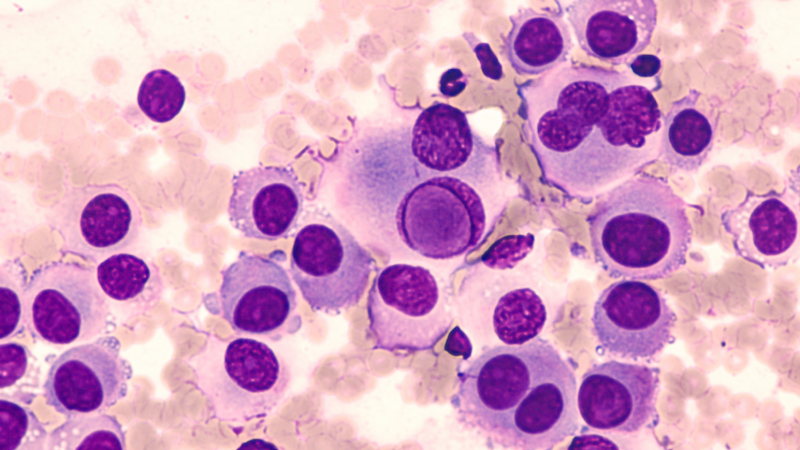Immune checkpoint inhibitors (ICIs) have led a shift away from mainstay cytotoxic agents and targeted therapies in the treatment of cancer, largely due to the unprecedented improvement in survival outcomes for key indications such as lung cancer and melanoma.
In melanoma, where 40–50% of patients harbour mutations in BRAF, a gene that encodes a protein called B-Raf, targeted therapies such as BRAF kinase and MEK inhibitors are being systematically replaced by ICIs in the first-line treatment setting. However, single-agent or combinations of BRAF inhibitors such as Zelboraf (vemurafenib) and Tafinlar (dabrafenib), and MEK inhibitors such as Mekinist (trametinib) and Cotellic (cobimetinib), remain effective for many BRAF+ patients. They exhibit a short duration of response. Also, many patients who progress on these agents develop resistance and can no longer be treated with these drugs. Triplet combinations of ICIs and BRAF/MEK inhibitor doublets have been studied for improving disease control rates in these patients. Recent clinical trials demonstrate that this approach could be beneficial for BRAF+ patients in the first-line setting. Questions that still remain to be answered include whether added benefits outstrip additional toxicities, which patients would benefit from triplet combinations the most, and whether a sequential treatment approach would be better than concurrent treatment.
Ongoing studies such as Merck’s KEYNOTE-022, Novartis’ COMBI-I, and Roche’s TRILOGY IMspire 150 studies show the extended duration of response and progression-free survival (PFS) when ICIs are added on to doublet of BRAF/MEK inhibitors. However, they also show a significant increase in toxicities and Grade 3 or higher adverse events. Roche has recently announced that Tecentriq (atezolizumab) in combination with Zelboraf and Cotellic has reached statistical significance in the Phase III IMspire 150 trial, meeting the primary endpoint for PFS in BRAF+ patients. As all trials with triplet combinations are signalling improved durable response rates and PFS, the frequency of serious adverse events and deterioration in the quality of life will be indicative of whether treatment benefits justify the added toxicity.
Regardless of the regulatory acceptance of these results, there is a need for a strategy to ascertain how to mitigate toxicities and determine which patients can benefit the most despite the increased burden of toxicity. The follow-up analysis of study cohorts in the clinical trials with ICI + doublet targeted therapies reveals a potential benefit even in patients without BRAF mutations. The lack of a definitive biomarker adds to the complexity of how to utilise triplet combinations in the first-line setting. A prospective biomarker could highlight the patient segment within the BRAF+ group that would be most ideal for treatment with triplet combinations.
There are also concerns about whether concurrent combinations are the most ideal way of utilising available therapies for BRAF+ patients in the first-line setting. AstraZeneca’s Phase I study for Imfinzi + doublet targeted therapy shows patients in the sequential treatment arm experienced fewer Grade 3 or higher adverse events and achieved longer durations of response compared to the combination treatment arm. Some of the other clinical trials for triplet combinations are also assessing sequential therapy options, which could offer a solution for the increased toxicities in triplet combinations.
Key opinion leaders interviewed by GlobalData agreed that triplet combinations will become relevant for BRAF+ melanoma patients as first-line therapies. However, finding the most ideal use for these therapies will be critical to providing better treatment outcomes for melanoma patients.

US Tariffs are shifting - will you react or anticipate?
Don’t let policy changes catch you off guard. Stay proactive with real-time data and expert analysis.
By GlobalData




